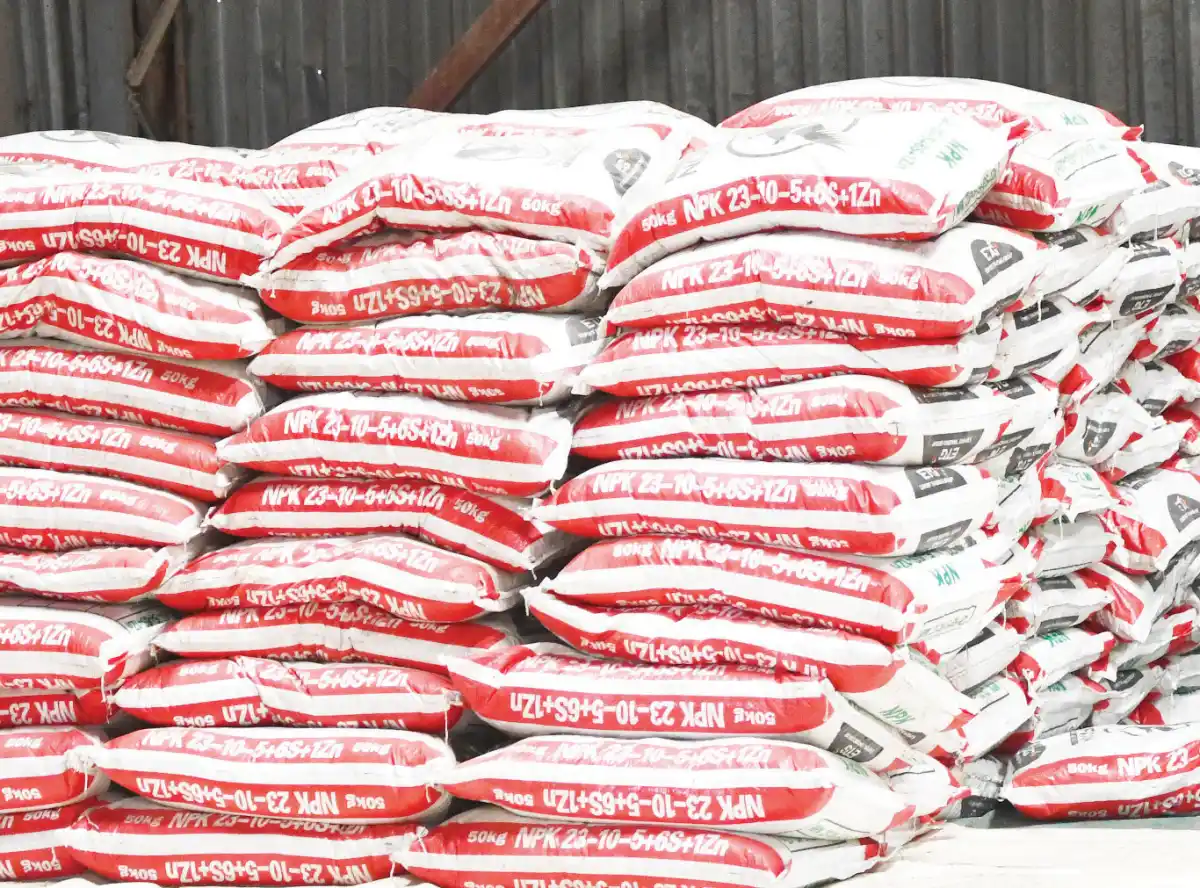
By Benadetta Chiwanda Mia:
Fertiliser suppliers say Malawi’s fertiliser market faced significant challenges in the 2024 agricultural season due to foreign exchange shortage and rising global fertiliser prices leading to reduced stocks.
Malawi’s annual fertiliser consumption ranges between 375,000 and 450,000 metric tonnes (MT).
However, Fertiliser Association of Malawi Executive Administration Officer Hannah Makhambera said in 2024, fertiliser importation was below the national requirement.
“In 2024, the country managed to import only about 355,000 mt. This shortfall was primarily due to limited access to foreign exchange, although there was a stock carry-over of approximately 99,802 mt,” Makhambera said.
As of November 2024, Malawi had 99,802 mt of fertiliser in stock, with an additional 129,252 MT in transit through the ports of Nacala (Mozambique) and Dar es Salaam (Tanzania), along with 106,000 mt on the high seas, according to FAM figures.
Looking ahead, the fertilizer supply situation in Malawi remains a challenge because of the critical foreign exchange unavailability, although players in the Fertiliser industry are doing their best to bring in more stocks through Collateral Management Agreement (CMA) and usage of other financial options,” she said.
Agricultural policy expert Tamani Nkhono Mvula emphasized the need to prioritise forex allocation for essential products, including fertiliser procurement.
“This is crucial because fertiliser access has a direct impact on the country’s food security,” Mvula said.
He also underscored the need for the government to fast-track fertiliser procurement before the onset of the next agricultural season to prevent shortages that have also affected the Affordable Inputs Programme.
“Investing in local production is another viable solution, but this requires significant resources, such as energy and capacity, which Malawi currently lacks. Organic fertiliser is an alternative, but incentives are needed to promote its production by creating a market. Currently, programmes like the AIP do not support organic fertiliser, making it a policy issue. We need to develop policies that encourage organic fertiliser production,” Nkhono Mvula said.
Economic expert Marvin Banda noted that the 2024 fertiliser market faced numerous challenges, leading to persistent price increases throughout the agricultural season.
“Forex shortages further hampered procurement, as competing demands for other essential goods made fertiliser acquisition less favourable,” Banda said.








0 Comments